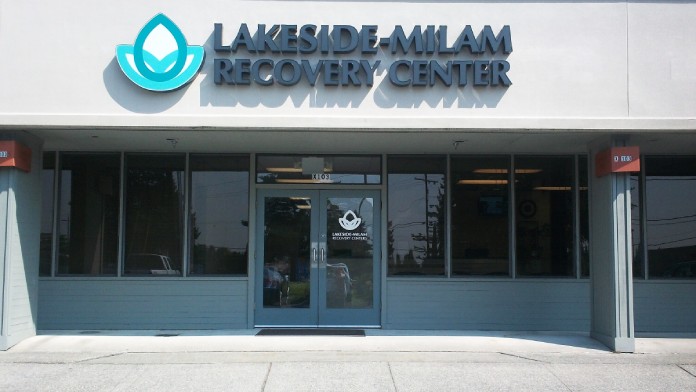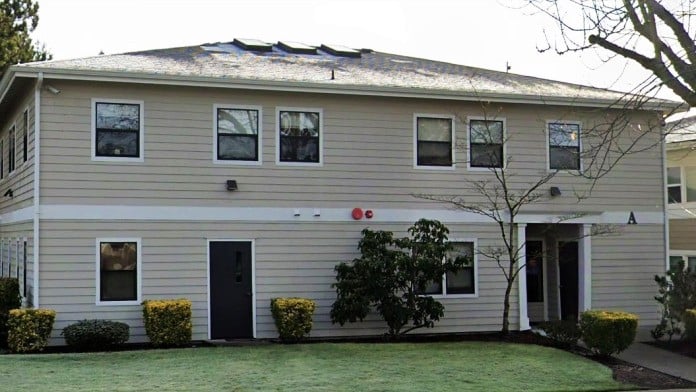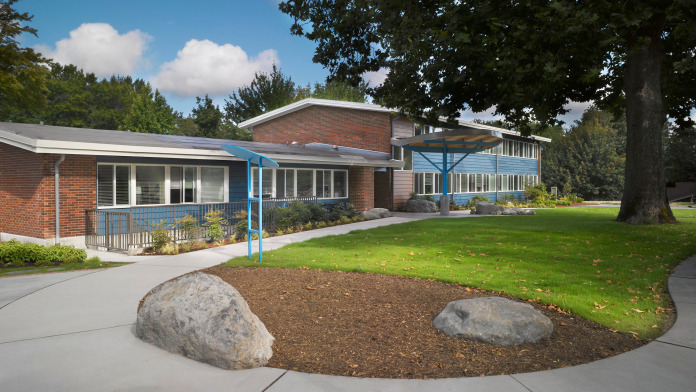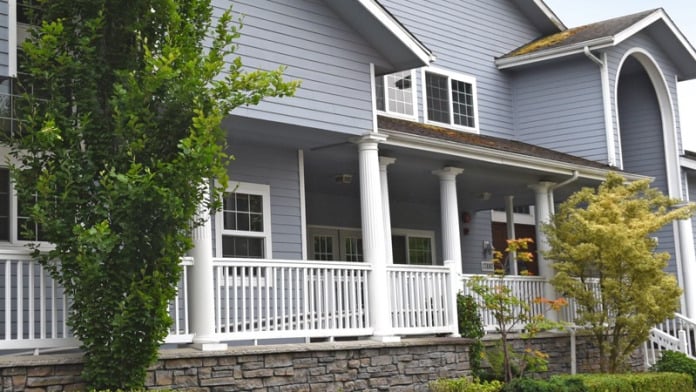I have had a wonderful experience! the staff is very professional, courteous, attentive and very respectful. I want to thank this center for the education I received, thanks to them I now understand the addictions and the griefs that cause not only my body but also my person ...
About Lakeside Milam Recovery Centers – Outpatient
You can receive free same day assessments to get started with your treatment as soon as possible. An addiction specialist will evaluate your medical history, substance use history and the severity of your addiction. Based on this information, they’ll develop a customized treatment plan. The plan usually includes individual counseling and intensive outpatient services such as group therapy and life skills training.
One unique service offered at this facility is their disease information school. It’s an eight hour course that will teach you about the psychological and physical impact of drug and alcohol misuse. They also provide a two year deferred prosecution program where clients will meet state requirements to have charges related to substance use dismissed.
Lakeside Milam Recovery is located near Washington State Route 99. With the facility being 30 minutes outside of Seattle, you have time in between your treatment sessions to visit iconic attractions like the Space Needle or take a ride on the Seattle Great Wheel.
One other service I like that they offer is the family disease education service. It provides your family with a safe outlet to process their emotions as they support your addiction recovery. They’ll also provide healthy communication workshops and addiction education. When you complete your treatment program, you’ll start continuing care. The facility can provide case management services through their therapist or an outside agency, and connect you with peer support groups that you can attend on a regular basis.
Latest Reviews
Rehab Score
Gallery


Other Forms of Payment
Private insurance refers to any kind of healthcare coverage that isn't from the state or federal government. This includes individual and family plans offered by an employer or purchased from the Insurance Marketplace. Every plan will have different requirements and out of pocket costs so be sure to get the full details before you start treatment.
Self-pay involves paying for treatment out of your own pocket. You can use savings or credit, get a personal loan, or receive help from family and friends to fund your treatment. If you don't have insurance or your insurance plan doesn't cover a specific program, self-pay can help ensure you still get the care you need.
Addiction Treatments
Levels of Care
Their outpatient programs are effective, convenient and discreet. They build individualized treatment programs to help patients get back on track—with minimal disruption to their busy lives. For many clients, the flexibility of outpatient care allows them to remain within a supportive family environment and to keep working. They offer programs that work. Over 80% of Lakeside-Milam clients get help through our outpatient programs. They have over 10,000 recovering alumni, with thousands of new patient referrals coming from former clients.
Intensive Outpatient Programs (IOP) are for those who want or need a very structured treatment program but who also wish to live at home and continue with certain responsibilities (such as work or school). IOP substance abuse treatment programs vary in duration and intensity, and certain outpatient rehab centers will offer individualized treatment programs.
Confront addiction and help an alcoholic friend or family member through Lakeside-Milam Recovery Centers drug and alcohol intervention services. Someone you know needs help. His—or her—alcohol abuse and drug using has gotten out of control, and is beginning to affect the rest of his life. Their caring, experienced specialists will tell you that an intervention is a way to confront people that are addicted to drugs and alcohol about the disease and get them the help they need and on their way to treatment and rehab.
12-step programs are addiction recovery models based on Alcoholics Anonymous (AA). A number of substance abuse programs (including some drug and alcohol rehab centers) use the 12 steps as a basis for treatment. Beginning steps involve admitting powerlessness over the addiction and creating a spiritual basis for recovery. Middle steps including making direct amends to those who've been hurt by the addiction, and the final step is to assist others in addiction recovery in the same way. 12-Step offshoots including Narcotics Anonymous (NA), Cocaine Anonymous (CA), Dual Recovery Anonymous (DRA), Sex and Love Addicts Anonymous (SLAA) and Gamblers Anonymous (GA).
Completing a drug or alcohol rehab program shouldn't spell the end of substance abuse treatment. Aftercare involves making a sustainable plan for recovery, including ongoing support. This can include sober living arrangements like halfway houses, career counseling, and setting a patient up with community programs like Alcoholics Anonymous (AA) or Narcotics Anonymous (NA).
Treatments
The goal of treatment for alcoholism is abstinence. Those with poor social support, poor motivation, or psychiatric disorders tend to relapse within a few years of treatment. For these people, success is measured by longer periods of abstinence, reduced use of alcohol, better health, and improved social functioning. Recovery and Maintenance are usually based on 12 step programs and AA meetings.
Effective drug rehab in Washington integrates care for the whole person, offering comprehensive solutions to addiction. Treatment methods address mental, physical, and relational aspects of substance abuse.
Many of those suffering from addiction also suffer from mental or emotional illnesses like schizophrenia, bipolar disorder, depression, or anxiety disorders. Rehab and other substance abuse facilities treating those with a dual diagnosis or co-occurring disorder administer psychiatric treatment to address the person's mental health issue in addition to drug and alcohol rehabilitation.
Opioid rehabs specialize in supporting those recovering from opioid addiction. They treat those suffering from addiction to illegal opioids like heroin, as well as prescription drugs like oxycodone. These centers typically combine both physical as well as mental and emotional support to help stop addiction. Physical support often includes medical detox and subsequent medical support (including medication), and mental support includes in-depth therapy to address the underlying causes of addiction.
Substance rehabs focus on helping individuals recover from substance abuse, including alcohol and drug addiction (both illegal and prescription drugs). They often include the opportunity to engage in both individual as well as group therapy.
Programs
Adult rehab programs include therapies tailored to each client's specific needs, goals, and recovery progress. They are tailored to the specific challenges adult clients may face, including family and work pressures and commitments. From inpatient and residential treatment to various levels of outpatient services, there are many options available. Some facilities also help adults work through co-occurring conditions, like anxiety, that can accompany addiction.
Young adulthood can be an exciting, yet difficult, time of transition. Individuals in their late teens to mid-20s face unique stressors related to school, jobs, families, and social circles, which can lead to a rise in substance use. Rehab centers with dedicated young adult programs will include activities and amenities that cater to this age group, with an emphasis on specialized counseling, peer socialization, and ongoing aftercare.
Clinical Services
Cognitive Behavioral Therapy (CBT) is a therapy modality that focuses on the relationship between one's thoughts, feelings, and behaviors. It is used to establish and allow for healthy responses to thoughts and feelings (instead of unhealthy responses, like using drugs or alcohol). CBT has been proven effective for recovering addicts of all kinds, and is used to strengthen a patient's own self-awareness and ability to self-regulate. CBT allows individuals to monitor their own emotional state, become more adept at communicating with others, and manage stress without needing to engage in substance abuse.
Addiction research has determined that successful treatment of an addicted person ideally includes the education of family members. Just as the disease of addiction causes dysfunctional behaviors in the addict, so too does it have psychological, emotional, and spiritual effects on family members. Family education is a unique program that helps family members understand how they been affected by the disease of addiction and how they can participate in the recovery of their loved one.
Group therapy is any therapeutic work that happens in a group (not one-on-one). There are a number of different group therapy modalities, including support groups, experiential therapy, psycho-education, and more. Group therapy involves treatment as well as processing interaction between group members.
In individual therapy, a patient meets one-on-one with a trained psychologist or counselor. Therapy is a pivotal part of effective substance abuse treatment, as it often covers root causes of addiction, including challenges faced by the patient in their social, family, and work/school life.
Life skills trainings involve all the skills a person must have in order to function successfully in the world. These include time management, career guidance, money management, and effective communication. Truly successful addiction recovery is based on the ability to not only live substance-free, but to thrive. Life skills teaches the practical necessities of functioning in society, which sets clients up for success in life, and therefore sobriety.
Amenities
-
Residential Setting
-
Private Setting
Accreditations

The Commission on Accreditation of Rehabilitation Facilities (CARF) is a non-profit organization that specifically accredits rehab organizations. Founded in 1966, CARF's, mission is to help service providers like rehab facilities maintain high standards of care.
CARF Accreditation: Yes
Contact Information
9930 Evergreen Way
Suite 103 Building X
Everett, WA 98204








